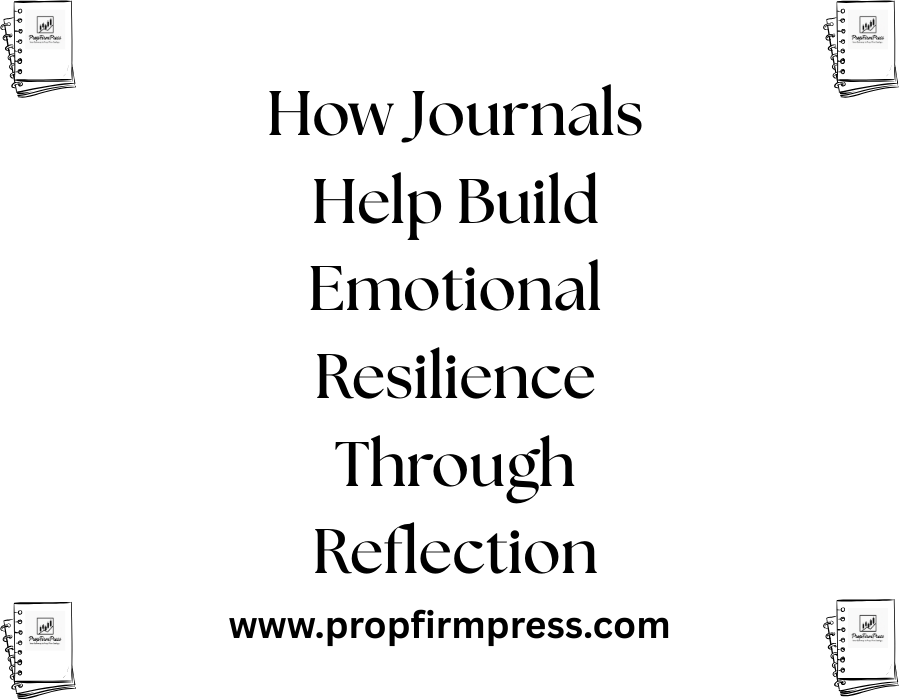How Journals Help Build Emotional Resilience Through Reflection
Emotional resilience is the ability to adapt and recover from adverse situations, stress, or emotional challenges. Developing this skill can significantly enhance one’s overall well-being, mental health, and daily functioning. One effective and accessible strategy for building emotional resilience is journaling. Through consistent reflection and self-expression, journaling serves as a powerful tool for understanding emotions, reducing stress, and cultivating a healthy mental state.
Understanding Emotional Resilience
Before exploring how journals contribute to emotional resilience, it’s vital to understand what resilience entails. Emotional resilience involves maintaining balance when faced with difficulties and bouncing back after setbacks. It includes the capacity to manage emotions effectively, stay optimistic, and navigate challenges with a problem-solving mindset. While some individuals may appear naturally resilient, it is a learnable and buildable trait.
Journaling specifically supports this process by providing an outlet for emotional processing, self-awareness, and cognitive restructuring. As people face emotional turmoil, journaling helps create space to analyze feelings and experiences critically.
The Role of Journals in Emotional Processing
Emotions can be complex and overwhelming, especially under stress. Journaling allows individuals to unpack these feelings by putting thoughts into words. Writing about emotions promotes clarity and decreases the intensity of negative feelings. It also reduces the feeling of being overwhelmed by providing an avenue to express frustrations, fears, or sadness.
By chronicling daily experiences and emotional responses, journals become a mirror reflecting inner thoughts. This reflection helps to identify emotional triggers, understand reactions, and uncover patterns that might contribute to emotional distress. Over time, this insight fosters greater emotional regulation and resilience.
Journaling as a Form of Reflection and Insight
Reflection is a core component of emotional resilience. When journaling, individuals have the opportunity to evaluate experiences from multiple perspectives. They can reassess past challenges and consider alternative responses or lessons learned. This process encourages a growth mindset, where setbacks become learning opportunities rather than sources of defeat.
The act of writing encourages mindfulness and deliberate thought. Rather than reacting impulsively to stressors, journaling offers a structured way to think through emotions and circumstances. Such reflection can illuminate strengths and coping mechanisms previously unnoticed, further building self-confidence and resilience.
Building Habitual Resilience Through Consistent Journaling
Like any skill, emotional resilience improves with practice. Developing a consistent journaling habit solidifies emotional resilience by creating a routine for reflection and processing. Setting aside time daily or weekly to journal helps make emotional check-ins a standard part of life.
Consistency ensures that emotions are not ignored or suppressed but are regularly addressed before becoming overwhelming. Additionally, habitual journaling offers a tangible record of emotional growth and resilience development, reinforcing positive progress.
Techniques for Effective Journaling to Enhance Emotional Resilience
Simply writing about daily events is beneficial, but there are specific journaling techniques that can maximize resilience building. These include:
-
Gratitude Journaling: Focusing on positive aspects of life can shift perspective from stress to appreciation, fostering optimism.
-
Emotional Release Writing: Free-writing about intense emotions without censorship to process feelings in depth.
-
Solution-Focused Journaling: Writing about challenges alongside brainstorming actionable coping strategies.
-
Prompted Journaling: Using specific questions like “What did I learn from today’s experience?” to guide reflection.
Integrating these techniques allows journaling to act not only as a recording tool but also as an active agent for cognitive and emotional growth.
Reducing Stress and Enhancing Mental Health Through Journaling
Research supports journaling’s ability to reduce symptoms of anxiety, depression, and stress. By providing a private outlet for self-expression, journaling decreases rumination and intrusive negative thoughts. Expressive writing helps individuals process trauma and difficult experiences, eventually reducing emotional burden.
Moreover, journaling encourages self-compassion by inviting individuals to observe their emotions without harsh judgment. This gentler approach to self-reflection fosters emotional healing, a critical element for resilience.
Tracking Progress and Building Self-Awareness
One of the powerful benefits of journaling is the ability to look back and review past entries. This practice helps track emotional patterns and responses over time. Seeing progress written on paper can be motivating and affirming, reinforcing resilience.
Self-awareness gained through journaling also improves decision-making and emotional regulation. Understanding one’s emotional landscape enables intentional reactions rather than unconscious habits, a hallmark of resilient individuals.
Journals as Tools for Habit Formation and Long-Term Growth
Building emotional resilience is not just about managing isolated incidents but creating lasting habits that support ongoing mental well-being. Journaling acts as a scaffold for habit building by encouraging reflection on daily habits, emotional responses, and progress toward personal goals.
When journaling becomes part of a larger habit-building strategy, it supports the continuous improvement of coping skills and emotional endurance. This continuous cycle of reflection, learning, and growth is essential for handling future challenges with confidence.
Incorporating Journaling Into Your Daily Routine
Starting a journaling habit may feel intimidating for some, but simple steps can ease the process. Choose a comfortable time and setting, keep the journal accessible, and avoid pressure to write perfectly or extensively. Even brief daily entries can yield benefits.
Pair journaling with other mindfulness or self-care activities like meditation or breathing exercises to deepen emotional engagement. Use prompts or templates if blank pages feel overwhelming. The key is consistency and openness to self-exploration.
Final Benefits of Journaling for Emotional Resilience
Through reflection, emotional processing, and habit building, journaling nurtures emotional resilience on multiple levels. It helps individuals confront and understand emotions, reduce stress, gain perspective, and cultivate healthier thought patterns. Over time, these effects accumulate, fostering a stronger, more adaptive emotional foundation.
Anyone looking to bolster their emotional resilience can benefit from adopting a journaling practice. It is a personalized, low-cost, and effective method to build mental toughness and emotional balance through the power of reflection.
